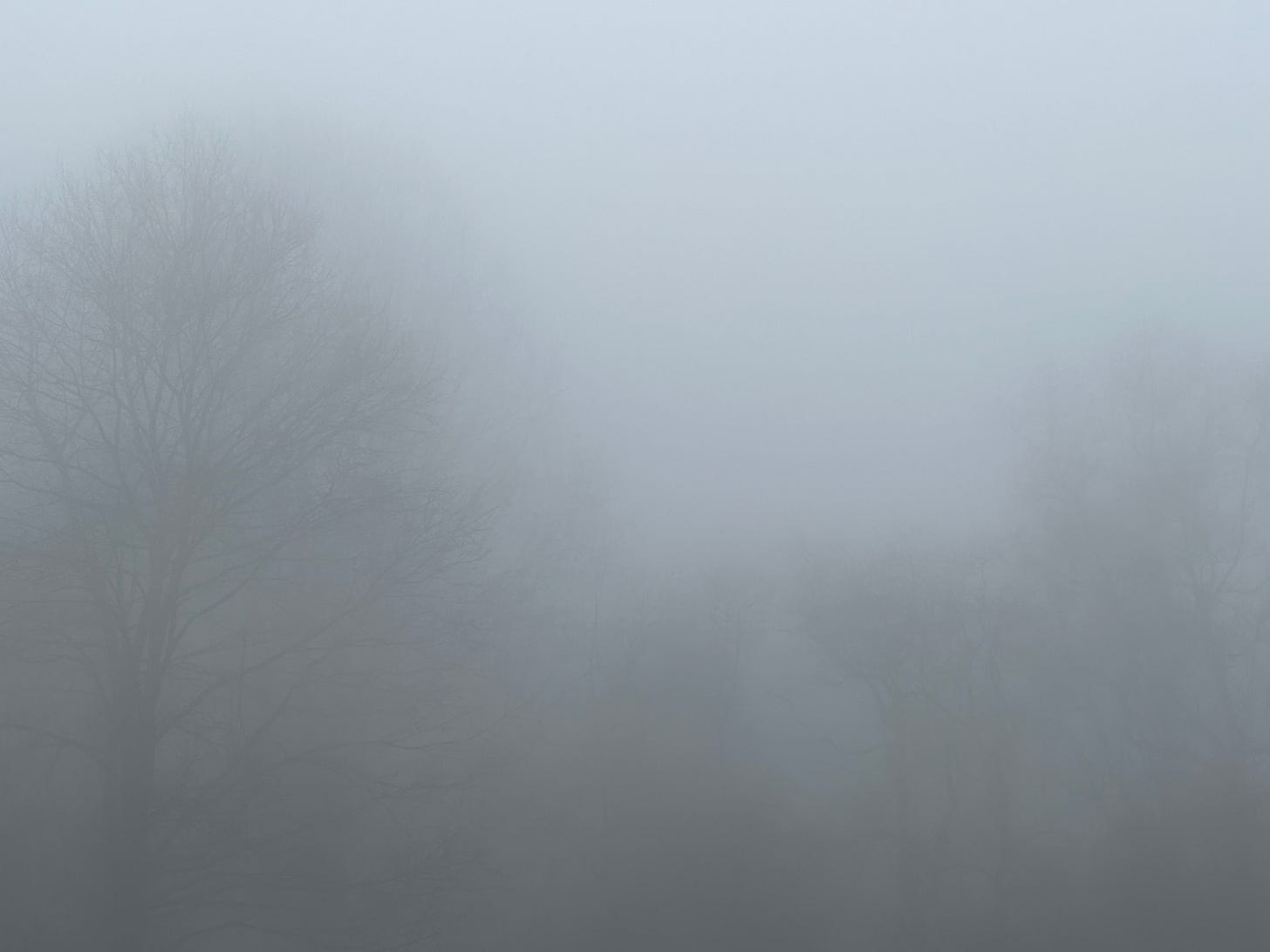The fog of unknowing…
I was having a healthy, albeit vigorous, discussion with someone about invasive species…someone whose job it is to eradicate them. I’m not going to out anyone here, but suffice it to say that many conservation groups use herbicides to control invasive species to “restore” biodiversity and help native species. And it’s cheaper to spray chemicals than to hire a thousand people to pull the pesky foreigners from their aggressive onslaught.
“But what about the biodiversity underground?” I asked. All the trillions of fungal networks, microorganisms, and living creatures that keep us alive even though we can’t see them with the naked eye, and who are killed by using chemical herbicides? They keep us alive even though we are stepping on them every day to go about our daily lives, oblivious to their importance. Is it more important to eliminate the things we see that we “think” shouldn’t be there? Or to preserve the whole ecosystem and attempt to understand why nature is inviting these foreigners into places they have never been before?
What if nature knows what it’s doing?
"When I turned from being a steward of the land to being a student of it, everything changed" That was a quote I read in a LinkedIn comment section recently. Someone had been to a farming conference and was quoting one of the speakers. The quote stopped me in my tracks because it articulated what I had learned writing Love Nature Magic. I tracked down the speaker, and it’s a guy named Steve Charter, who has a regenerative cattle ranching operation in Montana called Charter Ranch.
What if, instead of thinking that we are the stewards (aka. managers) of everything, we start asking questions and become students? After all, we only become aware of the things we cannot see when we create the tools to see them…microscopes, telescopes, technology, emotional intelligence, and humility.
From the soil microbiome to the gut microbiome to the realms of quantum physics, we are learning that the things we can’t see are often more important than the things we can. The things we can’t see deliver to us the things we rely on to survive, whether it’s our food, our health, or our wifi. (When was the last time you saw wifi signals traveling through the air?)
Even when it comes to people, we spend an inordinate amount of time talking about skin color, religion, nationality, and gender or sexuality when actually, the true nature of a person is what’s inside of them. There are good people and not as “good” people in every category listed. What if we look at people not based on the color of their skin or their surface identity, but on who they really are? That is a much harder task since it’s not always obvious. (And it’s actually where the intelligence of our gut microbiome comes in handy if we listen to it.) It’s easy to make snap judgments of good or not good, whether it’s a plant or a person. Really knowing something requires becoming a student — asking questions, thinking intelligently, and challenging our own built-in assumptions that may or may not be true. And sometimes we think we know something or someone and find out we were wrong. Then it’s time to revise our thinking and learn. We all make mistakes and sometimes they hurt. But being willing to learn from them and take the path of love (instead of revenge) is what creates a better world.
Personally, I think we are all here to learn. The minute we stop becoming students and stop asking questions and thinking we know everything is the minute we start to die. And maybe that’s why our society, planet, and environment are in crisis…because we have spent more time judging by appearances and thinking it’s our job to steward things — feeling entitled to having the world bend to our own desires and expectations, and less time evolving, learning, and being willing to change and grow.
It turns out that all the diversity we cannot see is more important than the diversity we can see. And we have probably only just begun to learn.
And that is why, in summary, we should never use chemicals (or weapons) to eradicate a living thing.





I just love this, Maria. It’s a reflection of my feelings though I did not have the words to speak it. The perfect vibe for every season.
I am glad you clarified and updated the last paragraph.
If we approach education as lifelong learning, then we all become students in life. And we will evolve.
In the meantime, your article needs,somehow, to reach everyone.